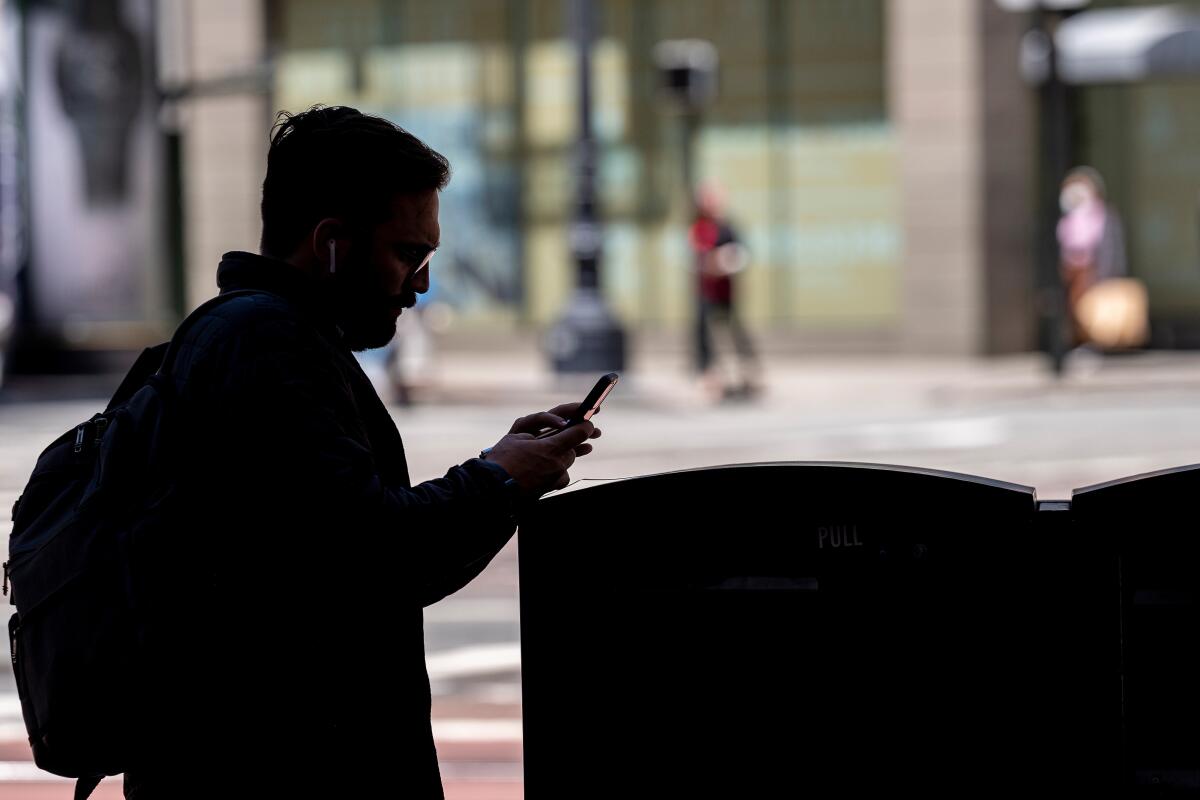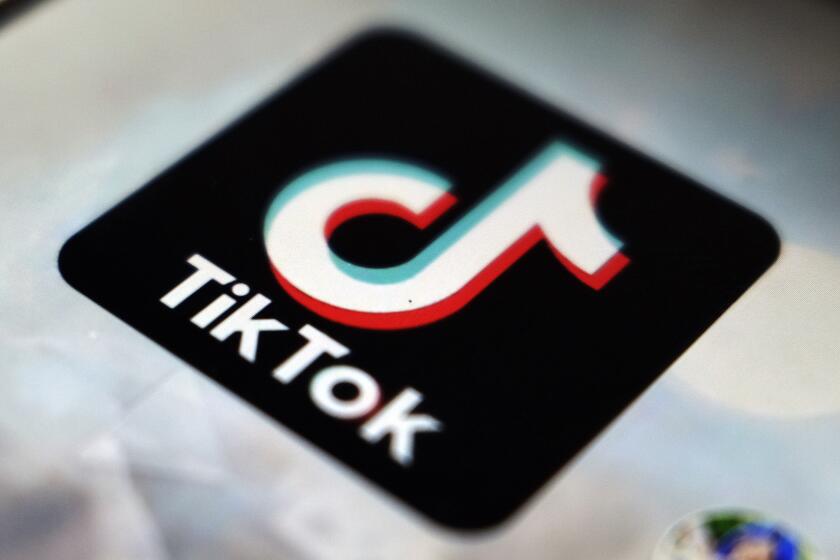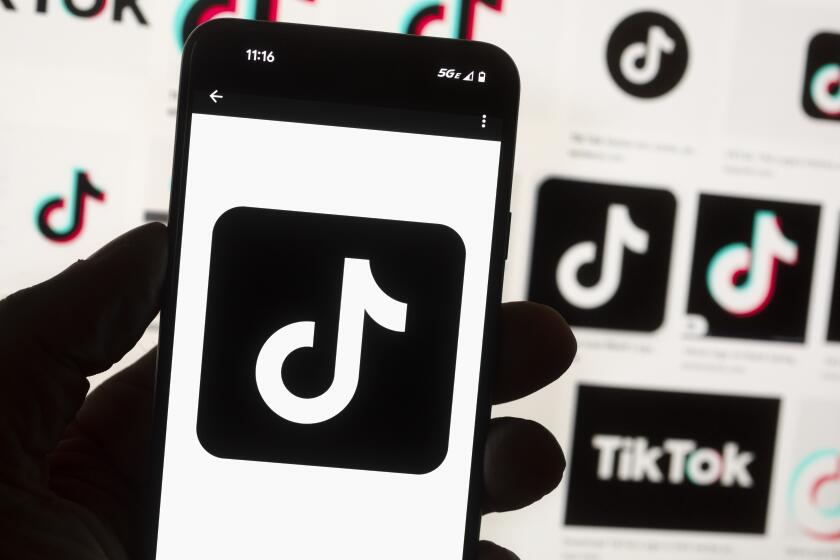Work phones make a comeback as offices ban WhatsApp, TikTok

- Share via
There may be a new ringtone in your life — the urgent chime of a company-issued cellphone.
In a throwback to the BlackBerry era, telecom service providers are seeing strong growth from companies handing out phones to employees. The phenomenon, which started during the COVID-19 pandemic, picked up recently thanks to new compliance policies around the use of WhatsApp and TikTok. It has provided a “tailwind” for subscriber gains at AT&T, Chief Financial Officer Pascal Desroches said at a conference this week.
At the same event, T-Mobile US CFO Peter Osvaldik said his company’s corporate customer count “grew every quarter in 2022.”
The phones are more than just a corporate perk, said Gartner analyst Lisa Pierce. “It’s also about control” — a means of restricting or blocking applications and keeping corporate data secure, she said.
Businesses, especially those in finance, have grown concerned about the security of their data, and the Securities and Exchange Commission and the Commodity Futures Trading Commission have stepped up their scrutiny over unauthorized private communication on applications such as WhatsApp and through personal email.
A number of countries have banned the use of TikTok, the Chinese-owned video-sharing app, on government devices over cybersecurity concerns.
Late last year, Congress, along with several states, banned China-owned TikTok from government employees’ devices over national security concerns. This puts organizations in the position of either requiring their workers to remove apps from personal phones, or offering a secure second device.
“It seems like everyone has two phones now — partly due to the industry we are in and the need for privacy and security,” said Benjamin Bielawski, an analyst with Duff & Phelps Investment Management in Chicago.
That second device helps explain how wireless carriers keep racking up millions of new subscribers long after the time when the mobile market passed saturation, with nearly every adult in the U.S. owning at least one phone.
App clampdown
With TikTok addiction being a concern, and GroupMe, WhatsApp and Twitter holding a firm grip on our screen time, there’s a potential conflict between work and personal life being conducted on the same device.
That’s why Vincent Powell, a San Francisco Bay Area account manager, has two phones, even though he occasionally gets puzzled looks from people as he takes out the second device to field emails and texts from clients.
U.S. federal agencies have been given 30 days to wipe TikTok off all government devices amid heightened security concerns over the Chinese-owned app.
“I like having my personal life more or less on one, and business on the other,” he said.
Powell’s dual device situation might not be so rare in the near future.
Neither AT&T nor T-Mobile disclose business-phone subscriber numbers. Verizon Communications and Charter Communications are the only two large carriers that break out the gains in work phone sales. Both saw more than 50% growth in business-phone customers last year.
Verizon on Friday promoted Sowmyanarayan Sampath, who previously ran the company’s business group, to lead its consumer unit, the wireless giant’s largest division.
The resurgence comes more than a decade after the need for work-dedicated devices started to fade. Once phones got smarter and new applications could cordon off work and play activities, having a second device was an unnecessary cost for big companies. The domination of Apple and Samsung Electronics has made it once again easier for companies to choose a device for their workers, said Maribel Lopez, an analyst with Lopez Research.
“It’s no longer BlackBerry at this point,” she said. “But it feels like old-school days.”
More to Read
Inside the business of entertainment
The Wide Shot brings you news, analysis and insights on everything from streaming wars to production — and what it all means for the future.
You may occasionally receive promotional content from the Los Angeles Times.












